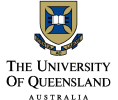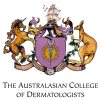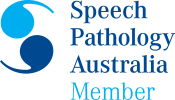How can I tell if my child has language difficulties or if they are just not fluent in English yet?
Often parents will bring in a child who has limited exposure to English for a language assessment. It can be difficult to determine whether the child has just had a limited exposure to English and therefore appears to be delayed, or if they truly have a language delay or disorder. The most important marker to note is whether the child has difficulty in their mother tongue. Children who have difficulty in their first language and their second language had a definite language delay or disorder. Children who only appear to be delayed in their second language are most likely delayed due to limited exposure to the second language. While many of the assessments conducted in Australia are not designed for bilingual children, there are versions of some of the common standardised assessments, which are designed for bilingual children and adults. The Clinical Evaluation of Language Fundamentals is a commonly used Language assessment endorsed by the NSW board of studies, which is available for children who speak English and Spanish.
How long does it take for my child to learn English?
Many children in Australia are exposed to a language other than English at home and are only later exposed to English through their peers. For these children, their first exposure to English may be at preschool or primary school. For children who aren’t exposed to English until Kindergarten, may not catch up to a native speaker until the sixth grade, given that they have missed 5-6 years of exposure and therefore may take just as long to pick up the same amount of language. For children that naturally excel at language, this may happen faster. However, every individual is different so will therefore acquire English at his or her own pace.
Will Learning two languages cause a language delay?
Learning two languages does not cause a language delay. Initially, it is common for children to have a silent period, where they do not converse as much while acquiring both languages. They may also mix up the two languages at times however bilingual children still reach their developmental milestones at the same time as other children so if your child is not meeting their milestones, it is important to see a Speech Pathologist to assess if there is an underlying language delay or disorder.
Contact us for results focused on speech therapy
This article was written by our Speech Pathologist Ashleigh Fattah who is a Speech Pathology Australia member. If you have questions about language activities, make an appointment. We‘ll provide you with simple and effective therapy targeted to your concerns. Contact us today.
The post Bilingual Children appeared first on ENT Wellbeing Sydney.










